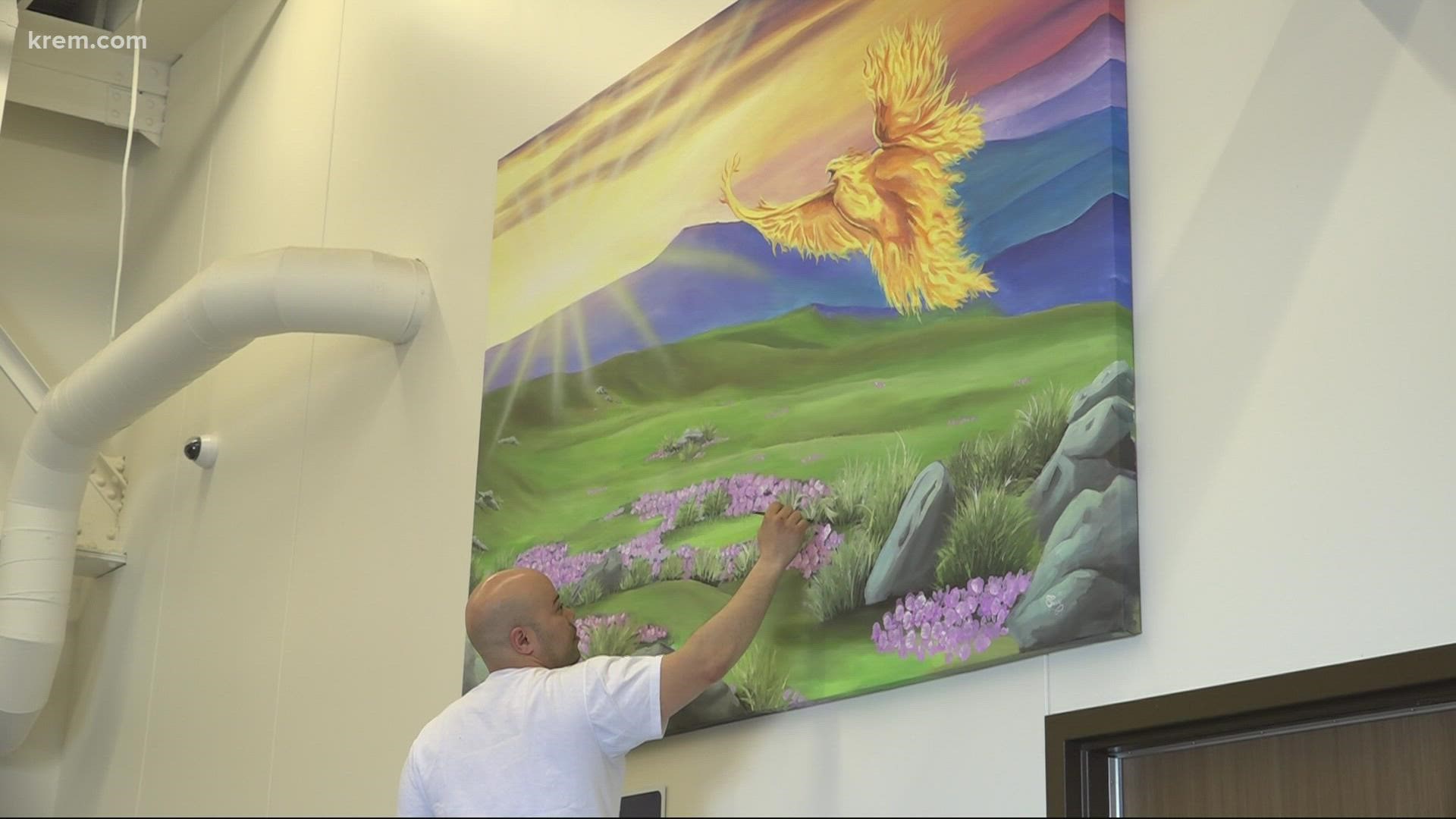SPOKANE, Wash. — The Spokane Regional Stabilization Center supports people on their journeys to safety, employment, recovery and hope.
On the walls of the center, inspiring those looking toward a second chance at life, is art by Myron Curry.
Curry said he's always loved to draw, but when he realized his full potential in painting, he knew he wanted to make it a focus of his career.
"I want to be able to have left something of value to someone else, to others, to my community and that is the impact that I can leave," Curry said. "That is something I’ve been passionate about since I’ve been doing art.”
Pioneer Human Services began as a halfway house in Seattle. Now, the organization has over 50 programs across Washington, helping people reentering society from prison or jail and those overcoming substance use and mental health issues.
Pioneer Human Services operates the center. Regional director Dan Sigler said hiring Curry and bringing his artwork into the center would help inspire hope, inspiration and comfort to clients in crisis.
“We'd seen his work in other places and other programs we've already had and knew how much art and environmental things just come into play when you're going through a hard time, the more comforting and welcoming you can make an environment feel, the better it is to helping recovery,” Sigler said.
One of Curry's most highlighted pieces is a phoenix, placed in the loading area where first responders bring in those in need.
The image of rebirth and new beginnings is one of the first people see when entering the facility.
“Someone told me that today’s the first day of the rest of your life," Curry said. "This kind of represents that new start and second chance. Hopefully people will take that second chance and make the best out of it.”
Second chances are a concept Curry is familiar with as his painting career is the product of a second chance.
Years ago, he was in a similar place to those who walk past his work in the center.
“I'm formerly incarcerated," Curry shared. "I work with a lot of different organizations through my transition and during my transition I’ve been able to work and partner with those same organizations I thought helped me.”
Curry said painting was his creative outlet during the time he spent in the federal institution system. Looking back, he said it was all about trusting the journey.
“Honestly, we learn the most from our mistakes," Curry said. "And sometimes if you're lucky you can transition a mistake or a situation into something positive and I am very good at doing that.”
In addition to his work in the center, Curry’s art can be found in galleries and murals around western Washington and California.

